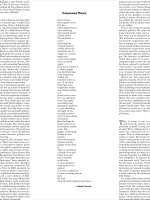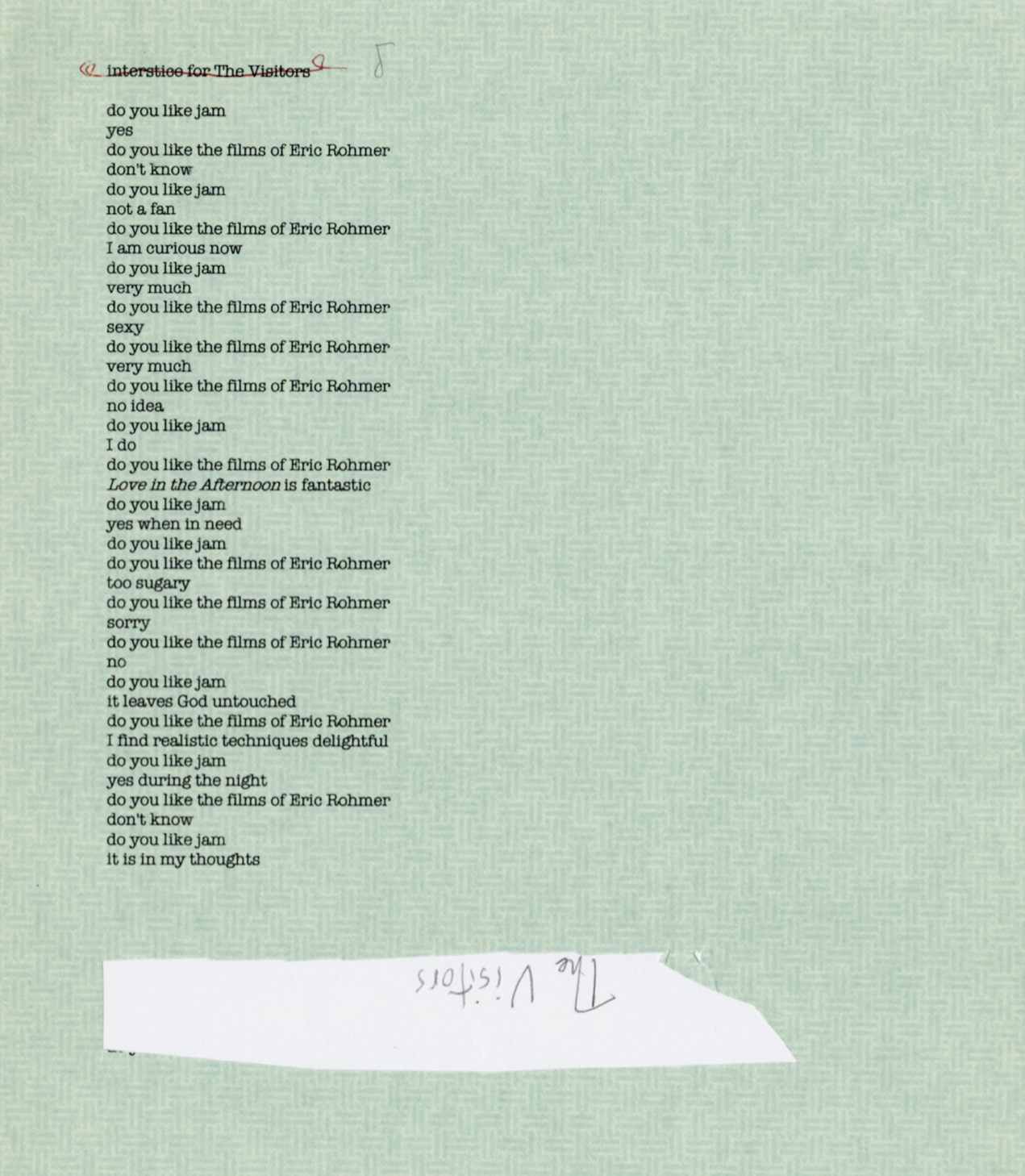Born in Toronto, Ontario, Canada, in 1950.
Anne Carson teaches Classics and Comparative Literature and received her PhD in Greek Poetry. Her work in translation has brought highly original (though at times dubiously accurate) interpretations to writers like Sappho (
If Not, Winter: Fragments of Sappho) and Euripides (
Grief Lessons: Four Plays). Her work as a classicist is an important influence on her poetry.
Carson has been a force in poetry since here first collection
Glass, Irony, and God in 1992, but gained a much wider readership and a great deal of critical acclaim for her verse novel
Autobiography of Red, published in 1998.
It is obvious in noting a few things about Carson that give warning of her strange ways and often eccentric approach to poetry. The fact that her first collection didn't appear until she was 42 (the same age Stevens was when he published
Harmonium); the funny biographical note on all her books that reads simply:
Anne Carson lives in Canada; her strange course through schooling--dropping twice out from Toronto University despite stellar academic abilities, but eventually going on, after a foray into the world of graphic arts, to receive here PhD.
In her work she displays an intensely experimental proclivity. Reviewers often make reference to the Pound adage "Make It New" and Rimbaud's "One must be absolutely modern" when speaking about her contortions and explorations of the limits of poetry. Her newest collection,
Nox, is an accordion-style book-in-a-box journal and journey through letters and found-poetry and photos centering around the death of her brother. Her collection
Decreation includes after some single poems, operas, plays, essays, and prose-poems.
Critics like Harold Bloom and writers Susan Sontag and Michael Ondaatje have hailed Carson as a dominant force in late twentieth and early twenty-first century poetry. Though she has been criticized for her obscure subject matter and, from that perspective, the emotional distance thus created. Particular criticism was leveled against
Autobiography of Red when some critics pointed out that alternating long lines and short lines did not really constitute 'verse' (the rumor is that Carson has admitted to writing it as a prose novel that she later 'versified', and on reading it you will notice a strong prosaic note to her poem that is also noticeable in much of her other work).
Whatever the opinions on her may be, she is undoubtedly being recognized as a significant poet, receiving a MacArthur and a Guggenheim, the Griffin Poetry Prize, the T.S. Eliot Prize, and a Lannan among other awards and nominations.
Harold Bloom writes in a book of criticism: For a more detailed bio and analysis go here
Anne Carson Criticism
Selected works
Eros the Bittersweet (1986) Princeton University Press
Glass, Irony, and God (1992) New Directions Publishing Company
Short Talks (1992) Brick Books
Plainwater (1995) Knopf
Autobiography of Red: A Novel in Verse (1998) Knopf
Economy of the Unlost: Reading Simonides of Ceos with Paul Celan (1999) Princeton University Press
Men in the Off Hours (2001) Knopf
Electra (translation) (2001) Oxford
The Beauty of the Husband (2001) Knopf
If Not, Winter: Fragments of Sappho (2002) Knopf
Decreation: Poetry, Essays, Opera (2005) Knopf
Grief Lessons: Four Plays by Euripides (translation) (2006) New York Review Books Classics
An Oresteia (Translation of Agamemnon, Elektra, Orestes. (2009) Faber and Faber
NOX (2010) New Directions



